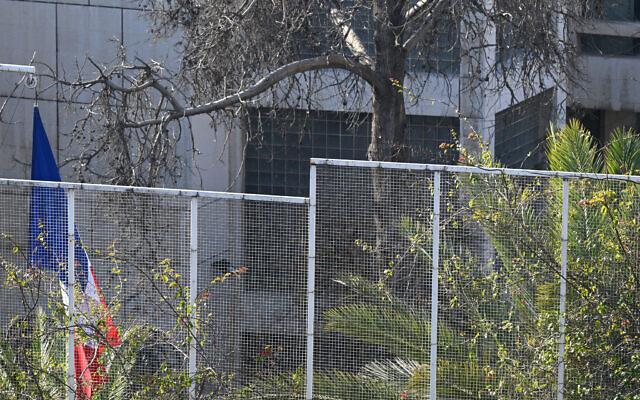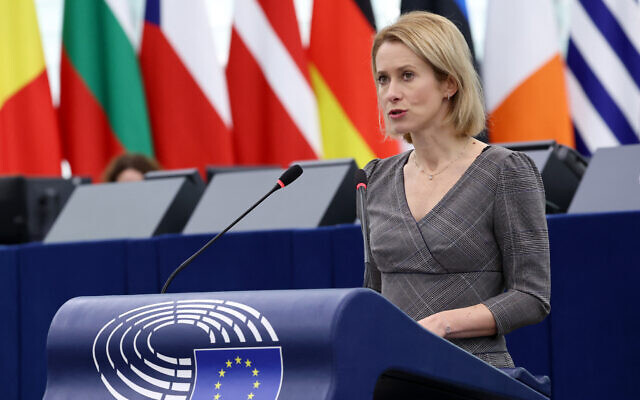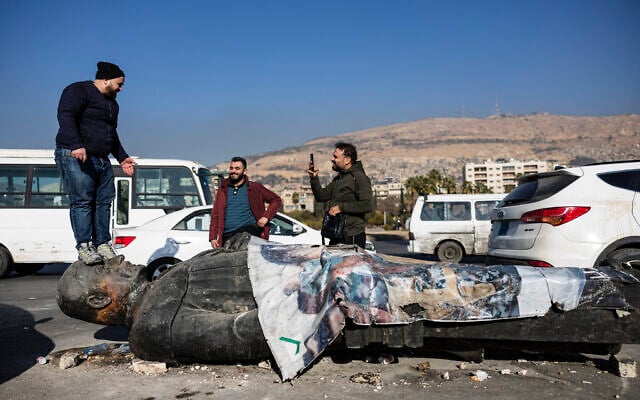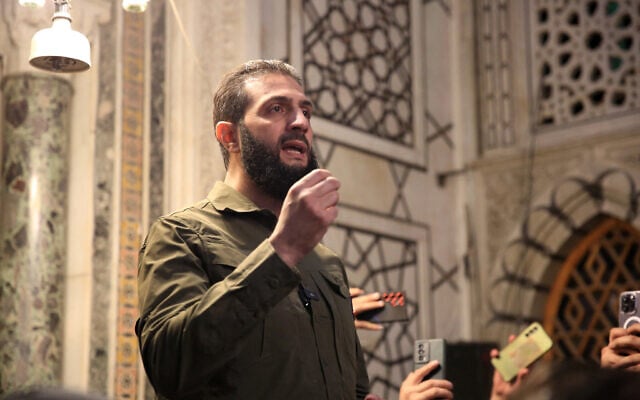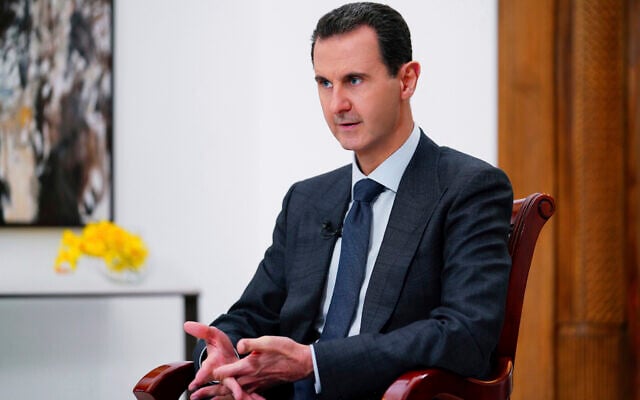


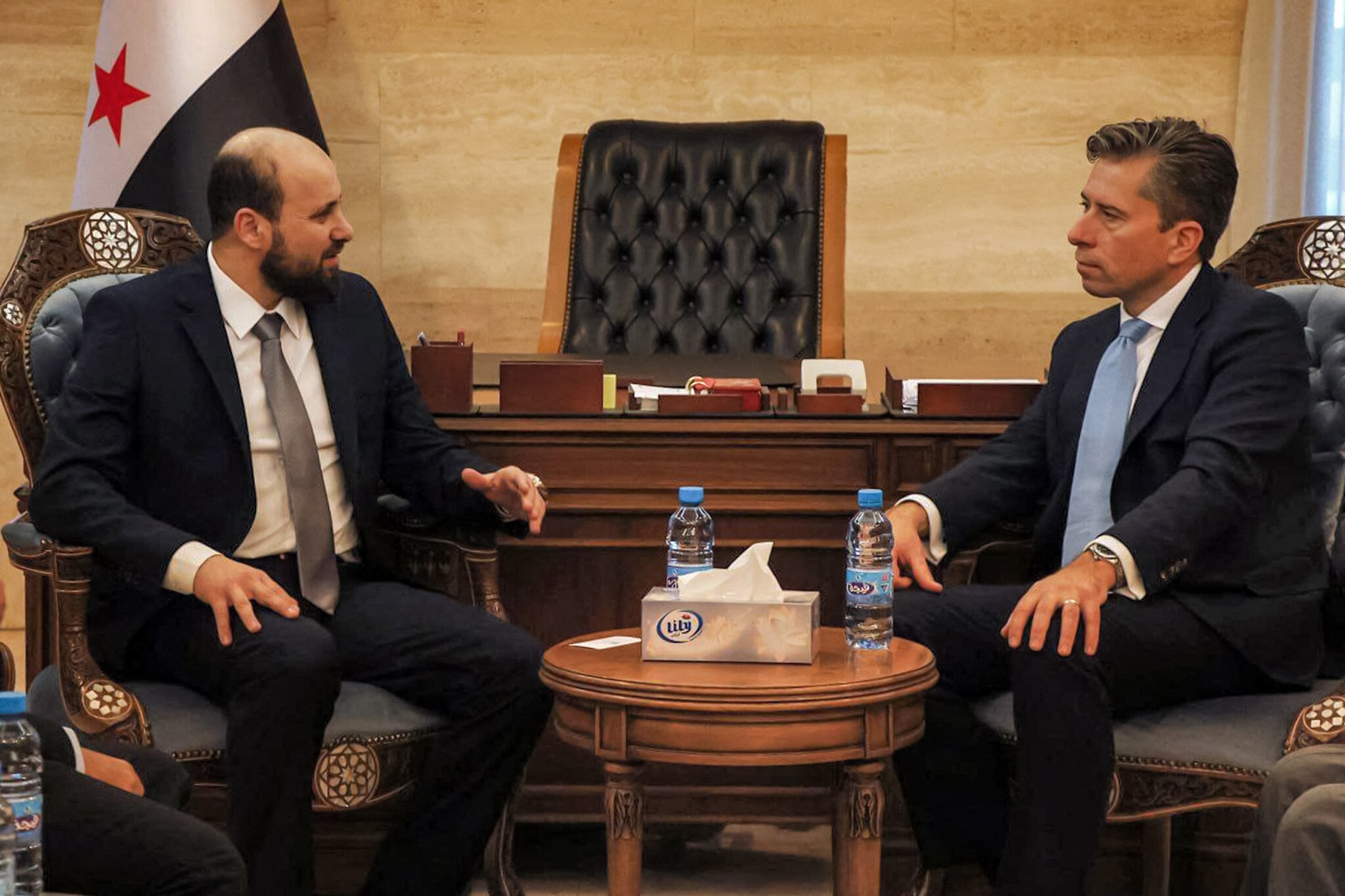
DAMASCUS, Syria — Syria’s new rulers stepped up engagement on Tuesday with countries that deemed ousted president Bashar al-Assad a pariah, with the French flag raised at the embassy for the first time in over a decade.
Assad fled Syria just over a week ago, as his forces abandoned tanks and other equipment in the face of a lightning offensive spearheaded by the Islamist Hayat Tahrir al-Sham (HTS).
The collapse of Assad’s rule on December 8 stunned the world and sparked celebrations around Syria and beyond, after his crackdown on democracy protests in 2011 led to one of the deadliest wars of the century.
Rooted in Syria’s branch of Al-Qaeda, HTS is proscribed by several Western governments as a terrorist organization, though it has sought to moderate its rhetoric and pledged to protect the country’s religious minorities.
Turkey and Qatar, which backed the anti-Assad opposition, have reopened embassies in Damascus, while US and British officials have launched communications with Syria’s new leaders.
France, a key early backer of the uprising, sent a delegation to Damascus on Tuesday, with special envoy Jean-Francois Guillaume saying his country was preparing to stand with Syrians during the transitional period.
An AFP journalist saw the French flag raised in the embassy’s entrance hall for the first time since the mission was shuttered in 2012.
After meeting Syria’s new leaders, the United Nations humanitarian chief Tom Fletcher said on Tuesday he was “encouraged,” and that there was a “basis for ambitious scaling-up of vital humanitarian support.”
German diplomats were also in Damascus on Tuesday, where they will hold talks that will focus on “an inclusive transition process in Syria and the protection of minorities” as well as “the possibilities for a diplomatic presence.”
Italian Prime Minister Giorgia Meloni said her country was ready to engage with Syria’s new leadership but urged “maximum caution,” particularly over their treatment of Christians.
She said the Islamist-led rebels would be judged on their attitude toward minorities.
“Italy… is ready to engage with the new Syrian leadership, obviously in the context of assessments and actions shared with European and international partners,” Meloni told parliament.
“The first signs seem encouraging but maximum caution is needed,” she said. “The decisive element will be the attitude towards ethnic and religious minorities.
Italy earlier this summer reopened its embassy in Damascus, becoming the first Group of Seven (G7) nation to do so.
Rome holds the rotating presidency of the G7 this year.
Meanwhile, the European Union is to reopen its mission in Damascus following “constructive” talks with Syria’s new leadership the bloc’s foreign policy chief said Tuesday.
“This is a very important step, that we will reopen the delegation in Syria,” the EU’s Kaja Kallas told the European Parliament.
The EU’s top diplomat for Syria visited Damascus on Monday for what Kallas called “constructive first contacts with the new leadership and various other groups, also the civil society”.
European nations — along with other international players — are jostling for influence in Syria after the end of the Assad family’s five-decade domination.
But they are wary of the new authorities.
“We can’t leave a vacuum in Syria. The EU must be present,” Kallas said.
The EU has said it stands ready to ramp up support for Syria — but has laid out a raft of conditions that new leaders must respect.
Those include protecting minorities, overseeing an inclusive transition and shunning extremism.
Kallas on Monday said the EU would also push those in charge over the presence of Russian military bases in the country, saying Moscow had no place in Syria’s future.
Syria came under international sanctions over Assad’s crackdown on protests, which sparked a war that killed more than 500,000 people and forced half of the population to flee their homes.
Assad left behind a country scarred by decades of torture, disappearances and summary executions, as well as economic mismanagement that has left 70 percent of the population in need of aid.
Abu Mohammed al-Julani, who heads HTS and now uses his real name Ahmed al-Sharaa, stressed the need in a meeting with a delegation of British diplomats to end “all sanctions imposed on Syria so that Syrian refugees can return to their country.”
He also said Syria’s rebel factions will be “disbanded and the fighters trained to join the ranks of the defense ministry.”
“All will be subject to the law,” he added, according to posts on the group’s Telegram channel.
“Syria must remain united,” he said. “There must be a social contract between the state and all religions to guarantee social justice.”
Kallas said the lifting of sanctions and removing HTS from its blacklist would depend on “when we see positive steps, not the words, but actual steps and deeds from the new leadership.”
In Damascus’s old souk, many shops had reopened more than a week since Assad’s ouster, according to an AFP journalist.
Some shopkeepers were painting their store facades white, erasing the colors of the old Syrian flag that under Assad’s rule had become ubiquitous.
“We have been working non-stop for a week to paint everything white,” Omar Bashur, a 61-year-old artisan said.
“White is the color of peace,” he added.
Abu Imad, another vendor, was selling vegetables from his car at a square in central Damascus.
“Everything happened at once: the regime fell, prices dropped, life got better. We hope it isn’t temporary,” he said.
With Assad gone, the Syrian pound started to recover against the dollar, moneychangers and traders said, as foreign currencies again became available on the local market.
Iran, meanwhile, which backed Assad throughout the civil war, said its embassy in Syria — abandoned and vandalized in the wake of Assad’s fall — would reopen once the “necessary conditions” are met.
Russia was the other main backer of Assad’s rule.
On Monday, the ousted president broke his silence with a statement issued on Telegram saying that he only left to Russia once Damascus had fallen, and denounced the country’s new leaders as “terrorists.”
Long before the emergence of HTS and jihadist groups in the Syrian war, Assad consistently branded all his opponents, including non-violent protesters, as “terrorists.”
“My departure from Syria was neither planned nor did it occur during the final hours of the battles,” said the statement.
Several former officials had told AFP that Assad was already out of the country hours before the rebels seized Damascus.
Times of Israel staff contributed to this report.

